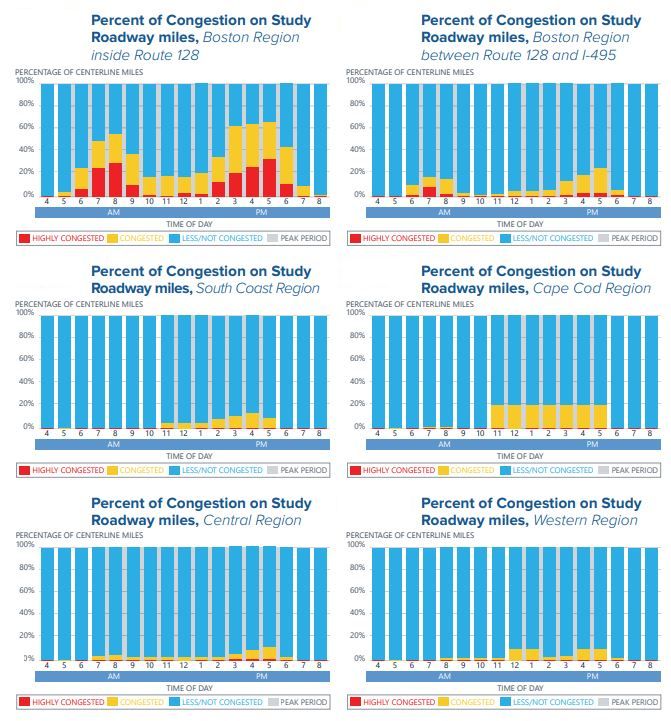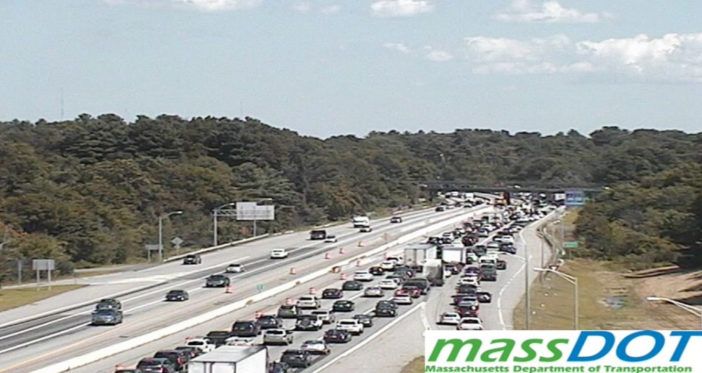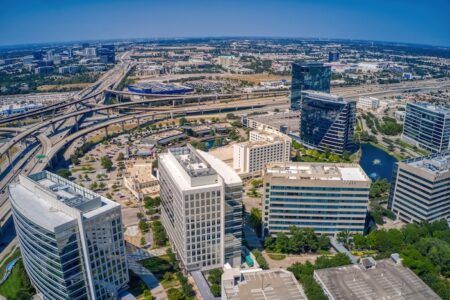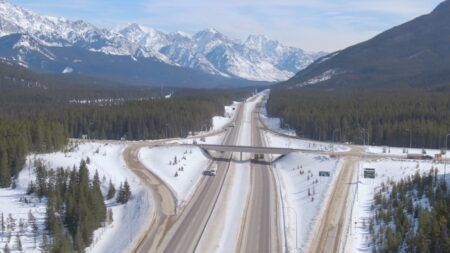The Massachusetts Department of Transportation (MassDOT) has released data-driven report on traffic congestion in the state, with recommendations to make commutes by road and transit more reliable, accessible and predictable while reducing greenhouse gas emissions.
In August 2018, Massachusetts Governor Charlie Baker directed MassDOT to begin a comprehensive analysis of when, where and why roadway congestion is worsening in the state. The agency’s new report quantifies levels of congestion and recent trends for specific locations, analyzes the problem’s causes, and recommends solutions for state and municipal government, the private sector and other stakeholders. As part of efforts to provide workers with more options for commuting, MassDOT has also announced that it is accepting applications for a new grant program to support innovative programs such as first/last mile van connections, partnerships between municipalities or employers with Regional Transit Authorities, and vanpools and carpools, which will help increase shared ridership options. The administration will also create a new grant program for municipalities to offer technical support so that cities and towns can develop their own transportation and management plans.
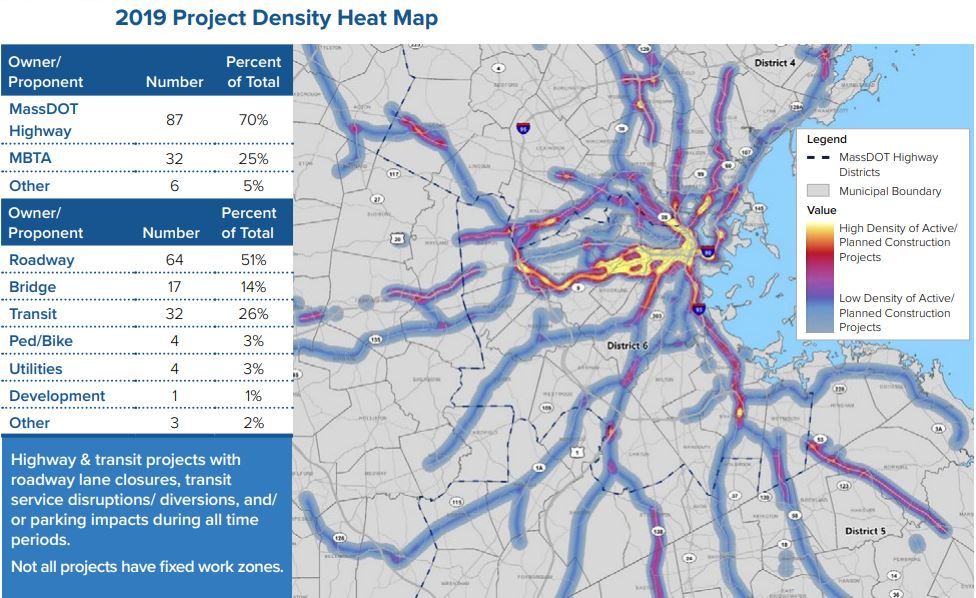
Addressing the policy priorities of reliability, accessibility, sustainability and equity, the report recommends:
- Address local and regional bottlenecks where feasible;
- Actively manage state and local roadway operations;
- Reinvent bus transit at both the Massachusetts Bay Transportation Authority (MBTA) and Regional Transit Authorities (RTAs);
- Increase MBTA capacity and ridership;
- Work with employers to give commuters more options, including providing grants for employers, Transit Management Associations, RTAs and others to provide innovative workforce transit options to employees;
- Create infrastructure to support shared travel modes;
- Increase remote work and ‘telecommuting’;
- Produce more affordable housing, especially near transit;
- Encourage growth in less congested Gateway Cities;
- Investigate the feasibility of congestion pricing mechanisms.
The report also evaluated different methods of congestion charging using Massachusetts traffic data and identified ‘managed’ or Express lanes as an approach for further study. MassDOT will now investigate the feasibility of implementing them on one or more highways in the Greater Boston area. The lanes would require drivers to pay a fee, which may be constant or vary depending on congestion levels. They could also be used by carpools, buses and vans free of charge, allowing more people to travel in a faster lane with less congestion and no fees.
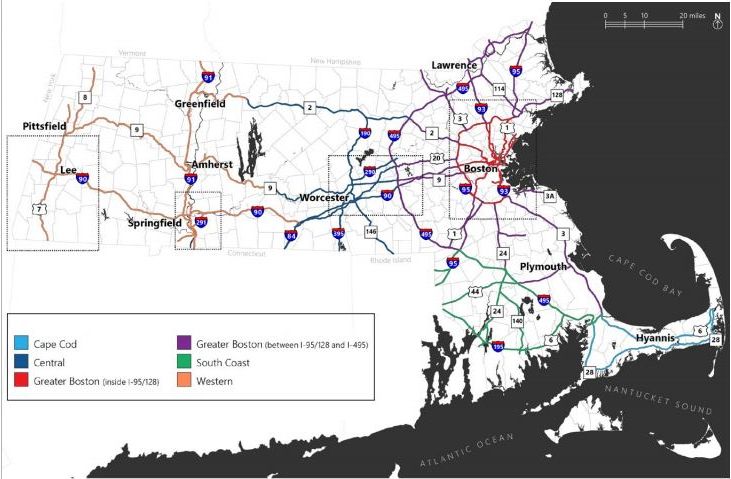
“We cannot eliminate congestion entirely, but we can better manage it to make trips more reliable and predictable,” noted MassDOT’s secretary and CEO, Stephanie Pollack. “That includes new initiatives as well as a greater emphasis on practices already in use, such as Traffic Management and Systems Operations (TSMO) practices that have been used in Massachusetts for years. Moving forward, managing roadways through a TSMO framework must become as much a part of the agency’s DNA as fixing potholes and plowing snow. Advancing, expanding, and institutionalizing these kinds of solutions will help limit the effects of crashes, work zones and weather on already lengthy commutes.”
Governor Baker commented, “Traffic and congestion are a nuisance for too many residents, and this report provides our administration with robust data to help us make informed decisions on how to build on our efforts to tackle congestion issues.”
